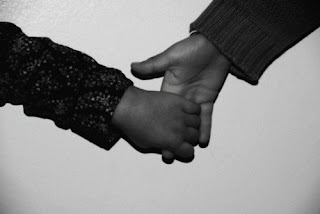 Like many religions Unitarian Universalism has struggled over the years with balancing its concern with the quest for meaning and its intuition that spiritual community should somehow be engaged in the concerns of the world. Our various liberal congregations have staked out various positions, so one church might be better known as focused within the “spiritual” while another might be seen as all about “social justice.”
Like many religions Unitarian Universalism has struggled over the years with balancing its concern with the quest for meaning and its intuition that spiritual community should somehow be engaged in the concerns of the world. Our various liberal congregations have staked out various positions, so one church might be better known as focused within the “spiritual” while another might be seen as all about “social justice.”
(This is setting aside for the moment our rather interesting approach to the spiritual which is itself often confusing to outsiders and even us…)
With my inaugural sermon at First U I’ve staked out a position I consider the authentic middle ground of a Unitarian Universalist way, our middle way. In Buddhism the middle way is between the extremes of asceticism and self-indulgence. In Unitarian Universalism the middle way is between focus on the interior life and social engagement.
I focused in that first sermon on what I consider to be the heart of a liberal religious spiritual path with its emphasis on the questing heart and its embrace of an engaged agnosticism. Next week (as I write this) I’ll focus on how that heart needs to be connected to a hand; what it means, as best I understand, to be religiously or spiritually engaged in the dealings of the world.
Here’s the point of this reflection. I am actually challenging us. I’m telling people who are given to the spiritual life and don’t understand why people are so preoccupied with social justice they need to give this a second thought. I’m also telling people who are all about social engagement and find this navel-gazing self-centered and a waste of time they need to give this a second thought.
I try to present kindly, but I’m actually pushing something here. This is not about being nicey-nice to each other. Rather this is something I think critical to our health, spiritual and otherwise. This is true for the congregation and it is true for our association of congregations, our denomination.
I declared in that first sermon how I believe to be focused on the inner path without finding some concrete expression in the lived world is to give oneself over to a dream. I meant by that thought, feeling, spiritual insight without manifestation has no power for living.
And, I said social engagement without some sense of interiority is to give oneself over to a monster. By which I meant action without grounding in an intimate sense of connection and purpose beyond some ideology (think Democrat, think Republican, think Libertarian, think liberal, think conservative as slogans that we can embrace without actually reflecting on the why and how of our deepest connections with each other) opens oneself to all sorts of cruelty and abuse in the name of some grand goal. Without some serious reflection one can buy a bill of goods and all too easily be seduced by those “ends justify the means” arguments.
Here’s the simple truth as I’ve come to understand it: There is no end; there are only means.
And if we miss this, we miss everything…
Now, I want to underscore here some good news: we don’t have to all do it by ourselves. It would be ideal if we each of us were totally balanced beings with equal measure of reflection and action. But I’ve never lived in an ideal world and I suspect strongly no one else has, either. In reality we find we depend upon each other for the totality of our lives. I need you. You need me. This doesn’t let us off our individual hooks, but it does say we support and are supported in this task. There is more mutuality here than might immediately be obvious.
In fact this is the point of spiritual community, of our gathering into religious institutions. We shore up each other’s weaknesses, and we encourage each other’s strengths. So, as an example, one is good at meditation. We encourage it, provide opportunities to deepen it, and to share it with others; and at the same time to see that there are suitable vehicles for action, in intimate ways and larger, that are offered within our community.
And the same thing for the activist…
Within the bonds of spiritual community each informs the other, each balances the other, each influences the other.
Not always comfortably. But nearly always for the better.
And in that the true middle way of liberal religion is revealed…
At least that’s how I see it.












